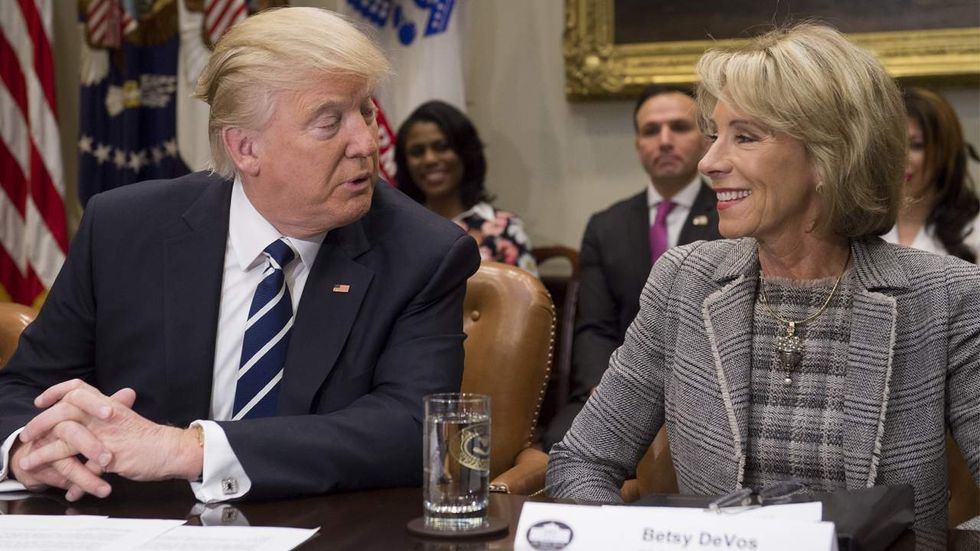
Education Secretary Betsy DeVos will reportedly provide details of the Trump administration’s school-choice plan on May 22 at a summit hosted by the American Federation for Children, DeVos’ former organization. (Saul Loeb/AFP/Getty Images)

Education Secretary Betsy DeVos will reportedly provide details of the Trump administration’s school-choice plan on Monday at a summit hosted by the American Federation for Children, DeVos’ former organization.
According to a report by Politico, DeVos is expected to release the administration’s plan to create a national tax-credit scholarship program that could provide billions of dollars to low- and middle-income families to pay for greater education options.
In September, then-candidate Donald Trump rolled out a $20 billion block-grant proposal that would have provided states with access to federal funds for creating school-choice programs.
The plan DeVos is expected to outline on Monday will likely be more similar to the Educational Opportunities Act, legislation proposed by Sen. Marco Rubio (R-Fla.) and Sen. Todd Rokita (R-Ind.) in 2013. That proposal, which was not approved by the House or the Senate, would have provided individuals with a tax credit amounting to as much as $4,500 for donating money to nonprofit scholarship-granting organizations, which would then provide scholarships to low-income students for use at public or private schools, including religious schools. Corporations could receive a tax credit worth up to $100,000 for its donations.
Politico also reports it’s unlikely the Trump administration’s plan will require states to create school-choice programs.
Because the proposal could be built into a larger tax-reform bill, it’s possible the school-choice plan could be implemented through the budget reconciliation process, which means only a simple majority of legislators in the Senate would be needed to end debate. Most legislation considered in the Senate requires 60 votes.
In creating a school-choice plan, the Trump administration must walk a fine line. Many Democrats will oppose any school-choice plan — largely because they receive significant financial and political support from powerful teachers unions — and some conservative Republicans will be very skeptical of any legislation that attempts to create a more significant role for the federal government in education, which they believe to be a state and local issue protected by the 10th Amendment.
If the Trump administration does roll out a plan with a $20 billion cap, it would be enough to provide 4 million children with $5,000 scholarships to use at other schools. Such a plan could help to radically transform the education landscape in states that seek to take advantage of the program and would force public schools to compete with nearby public schools of a higher quality and private schools, improving efficiency and educational quality.
Justin Haskins